Charities are wooing marketers with turnkey programs that make them look good and move products, too. by Noreen Brubeck
Marketers looking to jump on the cause-related bandwagon face rules and attitudes that are transforming the way such programs are developed and run.
Do-good promotions have moved away from the simple “feel-good” campaigns of a few years ago. In a business climate where accountability is king, charity tie-ins have become broad-based campaigns that must create positive images and move products off the shelf, not necessarily in that order.
Marketers find themselves dealing with savvy charity fundraisers who work with promotion agencies to develop and aggressively sell turnkey programs that generate various levels of retailer support The retail environment has also changed radically with respect to what sorts of cause-related programs the trade will back with merchandising.
“Cause-related marketing began in an age of innocence,” says Robert Herron, president of Easton, CT-based Senior Marketing Partners. “Charities would gather merchandisers for an FSI, then go to the retailer and say ‘please support this cause.’ Retailers began to back off when they realized the causes were diverting manufacturers’ merchandising allowances away from their coffers. They felt cheated because manufacturers were expecting retail support for less or no money.”
Mickey Goodman, managing partner of Market Growth Resources, Wilton, CT, sees retailers as overwhelmed with the number of cause-related promotions to choose from. “The retailers we work with regularly in coordinating these events are generally supportive, but they’re becoming more selective because there’s limited fixed space for displays and both manufactures and local causes are competing for it,” he says.
Because of the virtual elimination of traditional funding sources, a slowed economy, slackened corporate contributions, new tax deduction limitations and a tightening of discretionary income, tying in with marketers is a top priority for many charities looking for alternative sources of funds. As a result, marketers are being deluged with causerelated marketing proposals.

The American Red Cross, Mothers Against Drunk Driving, the American Diabetes Association, the Arthritis Foundation and others are developing highly targeted programs aimed at achieving multiple promotion objectives. Innovative marketing concepts are increasingly being created by top-level marketing executives who have crossed over from package goods marketing to corporate relations positions within charities.
Promotion agencies are taking control in many cases, developing proprietary and syndicated promotion programs and aggressively pursuing manufacturers on behalf of the charitable causes they represent. They are Delivering programs to vendors that measurably improve the bottom line enables agencies and charities to pitch retailers successfully. This creates a win-win scenario that is adding up to big bucks and increased market share for all sides of the equation.
 Harry Abel, former national sales director of Coca Cola USA, took the plunge into corporate fundraising when he joined the Arthritis Foundation, headquartered in Atlanta, as vice president of corporate relations. “When I told Coke I was planning to make the move, they reminded me that each year more than 500 cause tie-in proposals crossed their marketing desk. The only way not to get lost in the shuffle, they advised, was to create first-class promotions and bring marketing ideas to the table.”
Harry Abel, former national sales director of Coca Cola USA, took the plunge into corporate fundraising when he joined the Arthritis Foundation, headquartered in Atlanta, as vice president of corporate relations. “When I told Coke I was planning to make the move, they reminded me that each year more than 500 cause tie-in proposals crossed their marketing desk. The only way not to get lost in the shuffle, they advised, was to create first-class promotions and bring marketing ideas to the table.”
Abel took Coke’s advice to heart and has been actively developing programs for manufacturers to take to retailers. In this way, the retailers can take credit for the ultimate donation of funds to the foundation or non-profit organization. “We try to make the donation side as painless as possible,” Abel says. Locally-generated funds get fed back into local programs in that community,” he says. “In addition, our promotion costs run 10 percent or less, making it easy for corporate marketers to work with us.”
One such program is the “Help Is In Your Grasp” promotion targeted at consumers over age 45 – the population segment with 40 percent of U.S. disposable income.
The program provides manufacturers with a targeted pull-out insert in Readers Digest (16 million circ.) while lending grass roots support from some 71 Arthritis Foundation chapters and 80 branches in securing local retailer participation in the program.
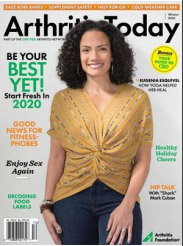 The event includes television support during the Arthritis Foundation Telethon and a free ad for manufacturers in Arthritis Today, the foundation’s 500,000 circulation magazine.
The event includes television support during the Arthritis Foundation Telethon and a free ad for manufacturers in Arthritis Today, the foundation’s 500,000 circulation magazine.
The Arthritis Foundation guarantees exclusive marketing opportunities, co-op advertising, off-shelf merchandising and event marketing to the vendor through Westport, CT-based Ryan Partnership, the promotion agency that coordinates the program. Manufacturers pay a $25,000 participation fee and a $75,000 minimum donation to the Arthritis Foundation.
Emotional Satisfaction
Emotional satisfaction is a by-product of working on social issues, even in an era where every product seems to have a mission. By mirroring the needs of our society. marketers are using these sentiments to their advantage.” A successful cause-related program has to have bottom-line consciousness. If we can’t produce results that are measurable for our sponsors. they won’t be back next year,” says Bill Lembeck, president of Ryan Partnership.
 Ryan is the agency of record for the (CMN), now in its eighth year. CMN was established to generate funds and awareness programs for the benefit of children served by its member hospitals. With the support of the Osmond family and extensive celebrity endorsements, this little-known charity soon developed the most successful telethon ever, generating a record $89.4 million in 1990.
Ryan is the agency of record for the (CMN), now in its eighth year. CMN was established to generate funds and awareness programs for the benefit of children served by its member hospitals. With the support of the Osmond family and extensive celebrity endorsements, this little-known charity soon developed the most successful telethon ever, generating a record $89.4 million in 1990.
A grass roots program, 100 percent of the funds raised in each area stay in the local market to help hospitalized children. local hospital executives help retailers execute programs in their communities. In eight years, the telethon, which will air June 1-2 this year, has raised a staggering $336 million. Achieving front-line support from 465 food, drug and mass merchandisers explains why participation has grown from two to 80 sponsors in the program’s short history.
Asked if the results would be diminished as the number of products participating in the telethon via FSIs, displays and feature ads increases, Lembeck says, “The total emphasis is on generating increased retailer support and incremental sales for participating manufacturers. The end result is helping five million children to better health.”
“This is our second year of participation in the CMN Telethon,” says Hugh Cavanaugh, consumer promotions manager at Clorox. “The target audience is predominantly families with kids. and that is important to us. The program is also looked on favorably by the grocery trade which supports it heavily on a local level,” he says.
Hershey has participated in the CMN program for six years. “We’re now using the CMN cause as a year-round theme in our marketing efforts,” says Lori Klucker, new products manager at Hershey. “We tied in with a back-to-school promotion and a successful Halloween contribution. CMN is our biggest and most important charitable promotion, because it’s a natural fit. It’s consistent with our concern for children as evidenced by the Milton Hershey Boy’s School in Pennsylvania.”

Also in its sixth year of sponsorship with the CMN Telethon is Kimberly Clark. Ernie Pugliese, associate director of sales promotions says, “Our brands enjoy excellent trade support and consumer take away. The CMN event gives an extra boost to sales that is attributable to the positive reaction from shoppers to our sponsorship.”
The National Easter Seal Society which pioneered cause related marketing had a unique program that it implemented on the first Sunday in March, called the “Partners for Independence,” which was a cooperative coupon program designed to help America’s disabled, that tied in with Easter Seals’ annual telethon.
These ad co-op programs are promoted to more than 200 retail chains by heads of local Easter Seals chapters. The program includes special ad allowances and merchandising incentives for each chapter to encourage local retailer support.
“Red Ribbon America,” a promotional event developed with Mothers Against Drunk Driving (MADD), by Marketing Corporation of America (MCA in Westport, CT), was billed as the largest in-store promotional event ever and the first national in-store couponing program tied to a cause.
 The promotion will bring manufacturers, retailers and volunteers from MADD together for a heightened November public awareness campaign. Funds will be generated for MADD through a logo licensing agreement between MADD and MCA. The program hinges on the more than 25,000
The promotion will bring manufacturers, retailers and volunteers from MADD together for a heightened November public awareness campaign. Funds will be generated for MADD through a logo licensing agreement between MADD and MCA. The program hinges on the more than 25,000
trained MADD volunteers who will distribute 30 million coupon books and red ribbons in-store to support safe and sober driving. Nearly 15,000
supermarkets will participate and manufacturers can target from among 22 markets.
Dave Moran, marketing director-promotion programs at MCA, explains, “MCA obtains retailer and manufacturer participation, MADD provides the volunteers, MCA trains them and manufacturers provide the coupons and tie-in promotions. Radio, Best Food Day newspaper ads and ancillary direct marketing efforts will support the effort.
Important Qualifying Factors
Cost-per-thousand of the MADD program is $12, and 13,000 stores –including eight of the top 10 chains — signed up for the program. Moran sees in-store cause-related couponing as a major marketing thrust , and MCA has developed criteria for choosing contemporary causes for future promotions based on twelve qualifying factors such as consumer awareness, broad-based appeal and organizational credibility. MCA also solicited corporate underwriters for a drug-free entertainment special to air on national television.
The fundraising effort, with turnkey promotion tie-ins established a school-based drug awareness/prevention program for grades K-12 throughout America, and has drawn support from more than 50 celebrities, sports personalities and performers.

Headed by Roger Chapin, founder and president of Help Heal Veterans, the four-hour special was filmed in in Hawaii, Universal City and Nashville. The seed money was divided between grant programs to benefit local communities in developing appropriate programs, and drug education programs for kids such as Q.U.E.S.T., D.A.R.E and “Just Say No”.
Consumers, who are being hit with more and more appeals to the heart are becoming more discriminating in the campaigns to which they respond. They tend to shy away from charitable appeals that rely on gimmickry and respond to those that address them with intelligence, accountability and a legitimate sense of necessity. One annual promotion that addresses a very real need is “The Generations of Service” campaign sponsored by the American Red Cross.
Senior Marketing Partners, of Easton, CT, developed a strong retailer appreciation program last year that spotlights the contributions of the retail food industry over the last 30 years as the key source of supplies for the Red Cross in times of disaster. This public-relations-based promotion was delivered to consumers via in-store displays and ads which complimented participants’ marketing efforts featuring the “Generations of Service” and Red Cross logos.
Nabisco donated more than $600,000 to local chapters in the names of various retailers last year, and advertised every one of its brands in the program. An 800-number attached to various vehicles enabled consumers to make direct donations to the Red Cross. In return, Nabisco sent a coupon booklet to each donor.
The booklets were customized for each retail chain and non-competing private-label offers were featured on the back cover. Each certificate will be coded by brand and retailers will earn 10 cents per certificate redeemed.
With the bulk of charity dollars coming out of marketing budgets and being deducted as business expenses, manufacturers are concerned that causes prove how they can justify proposals that seek dollars from allocated funds. That’s not all that is standing in the way of blindly throwing support behind cause- related campaigns. Retailers want to make sure that manufacturers are not taking advantage of them by soliciting support for causes the manufacturers would normally be paying for.
The Better Business Bureau’s Philanthropic Advisory Service has compiled a set of voluntary disclosure standards for manufacturers to follow in detailing guaranteed contribution deals. Clear standards regarding the prohibition of non-profit groups from endorsing products are specified and recognized in the industry.
Corporate social responsibility is something that everyone has come to expect. Causerelated promotions provide an opportunity to meet that responsibility in a positive and upbeat way that can also result in a better return on investment.


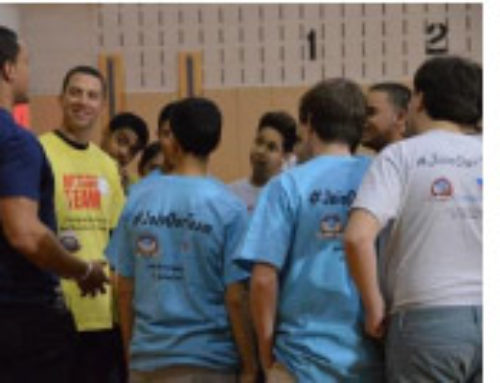
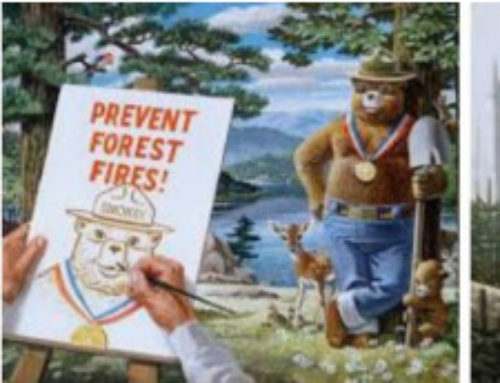
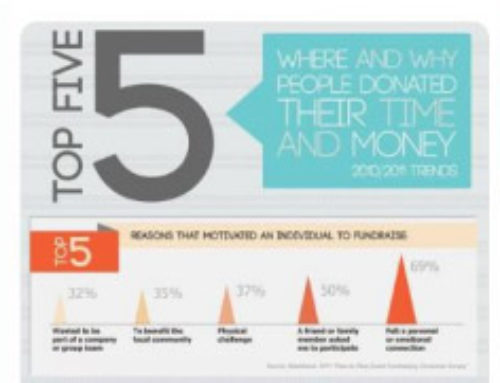
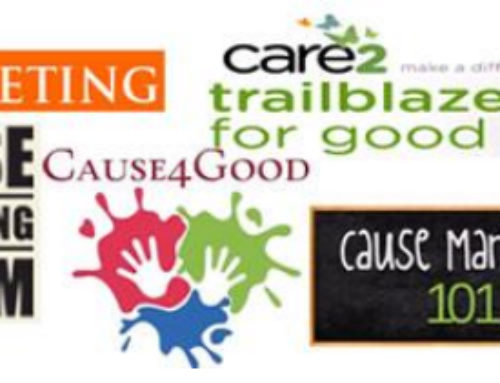

Leave A Comment